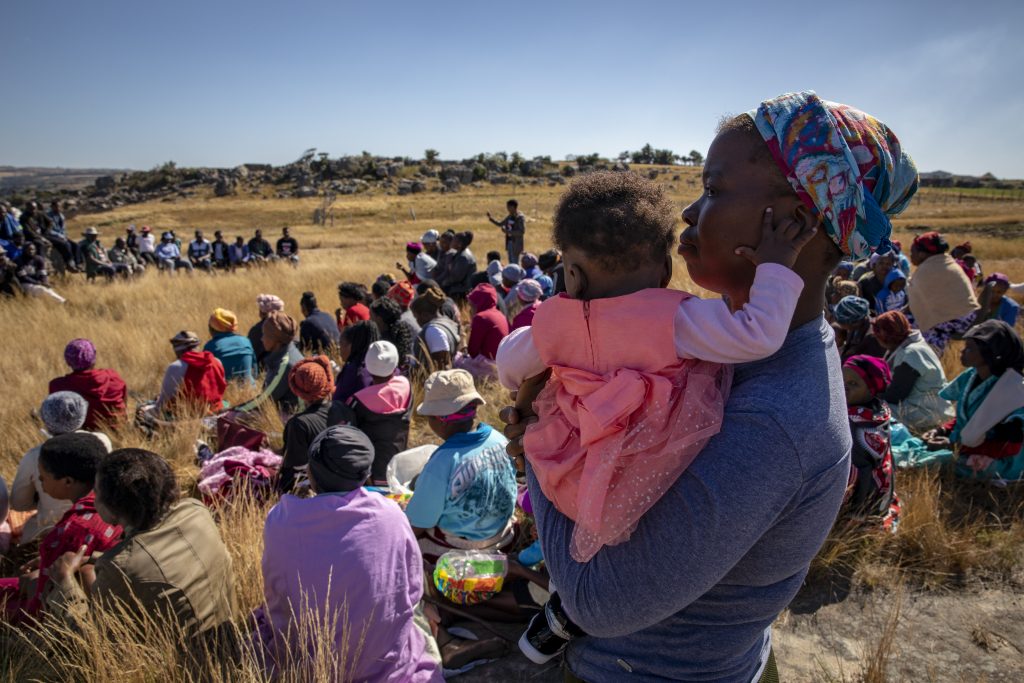The South African authorities must use its review at the UN Committee on Economic, Social and Cultural Rights in Geneva from 24 September to 12 October 2018 as an opportunity to increase protection of the rights to health and housing Amnesty International said.
“The South African government must face up to its failure to protect the rights of the most marginalized,” said Shenilla Mohamed, Executive Director of Amnesty International South Africa.
“The Committee on Economic, Social and Cultural Rights’ review is a moment to address increasing poverty and inequalities, including barriers to reproductive health services for women and girls, and the shocking failure to provide access to safe abortion care.”
Amnesty International’s research team on South Africa will present a statement during the UN body’s review, and the organization will have spokespeople available in Johannesburg and Cape Town.
Talking points include:
The Right to Adequate Housing
- The government has failed to enforce corporate responsibility within the extractive industry and ensure Social and Labour Plans – which require provision of safe and affordable housing – are delivered, and left thousands to live in appalling conditionsResidents in mining-affected communities, such as Nkaneng informal settlement near Marikana, do not have access to adequate shelter, sanitation, water, or electricity.
- Nationally, millions of South Africans are living in inadequate housing with growing numbers left in informal and unsuitable accommodation, as provincial and municipal authorities have failed to spend budget allocations for Human Settlements.
- Migrant workers remain highly vulnerable to poor housing conditions.
The Right to Health
- South Africa’s Choice on Termination of Pregnancy Act (1997) led to a 90% reduction in abortion related deaths and injuries once enacted. Yet, two decades later, unsafe abortions occur frequently in the country, contributing to high rates of avoidable maternal mortality and morbidity.
- Over a quarter of abortions in South Africa take place in the second trimester of pregnancy.
- In 2017, Amnesty International found only 7% of the country’s public health facilities offered abortion services. The Department of Health’s response to the request for information from Amnesty International confirmed that 505 facilities are designed to provide termination of pregnancy services and of these, only 264 health facilities are providing first and second trimester termination of pregnancy services.
- The national department of health has failed to maintain accurate information regarding which public health facilities provide abortion services and at which gestational ages. And such information is unavailable to the public.
- The government has failed to tackle pervasive stigma towards women and girls seeking abortion services, or to ensure accountability for health professionals who refuse to uphold their ethical responsibilities to provide abortion care.
- The dire lack of health facilities providing abortion has resulted in large distances and high costs of transport, disproportionately impacting women and girls living in poverty.
- Amnesty International is also concerned by high rates of unplanned pregnancies, including among school learners in South Africa. The organisation documented the failure of the authorities to ensure that information about sexual and reproductive health and rights is adequately disseminated, including through comprehensive sexuality education.
- In 2014, Amnesty International reported breaches of the right to privacy and confidentiality, including the lack of informed consent around HIV testing during ante-natal care. This was found to have serious consequences of deterring pregnant women and girls from seeking timely antenatal care and essential HIV treatment where needed.
- High numbers of births continue to take place outside of health facilities, reflecting catastrophic transport costs and a lack of emergency medical transport in rural areas.
- Criminalization of sex work in South Africa has increased the risk of human rights violations, including the right to health, including protection and treatment of HIV.
- Criminalization of sex work is also a barrier to police protection and access to justice for sex workers who experience high rates of violence.
Read Amnesty International’s written submission on South Africa to the CESCR Committee here.
Background
South Africa ratified the International Covenant on Economic, Social and Cultural Rights in January 2015. This is the first time the county will be reviewed before the Treaty Body’s Committee. Article 11 of the ICESCR protects the right of everyone to adequate housing. Article 12 of the ICESCR protects the right of everyone to the enjoyment of the highest attainable standard of physical and mental health.
****************************************
For more information or to request an interview, please contact:
In Johannesburg Mienke Steytler, Media and Digital Content Officer, Amnesty International South Africa: +27 11 283 6000 (office) or +27 (0)64 890 9224 (mobile); mienke.steytler@amnesty.org.za
Or
Robert Shivambu, Media Manager – Amnesty International – Southern Africa on +27 11 283 6000 or +27 83 437 5732 or robert.shivambu@amnesty.org


